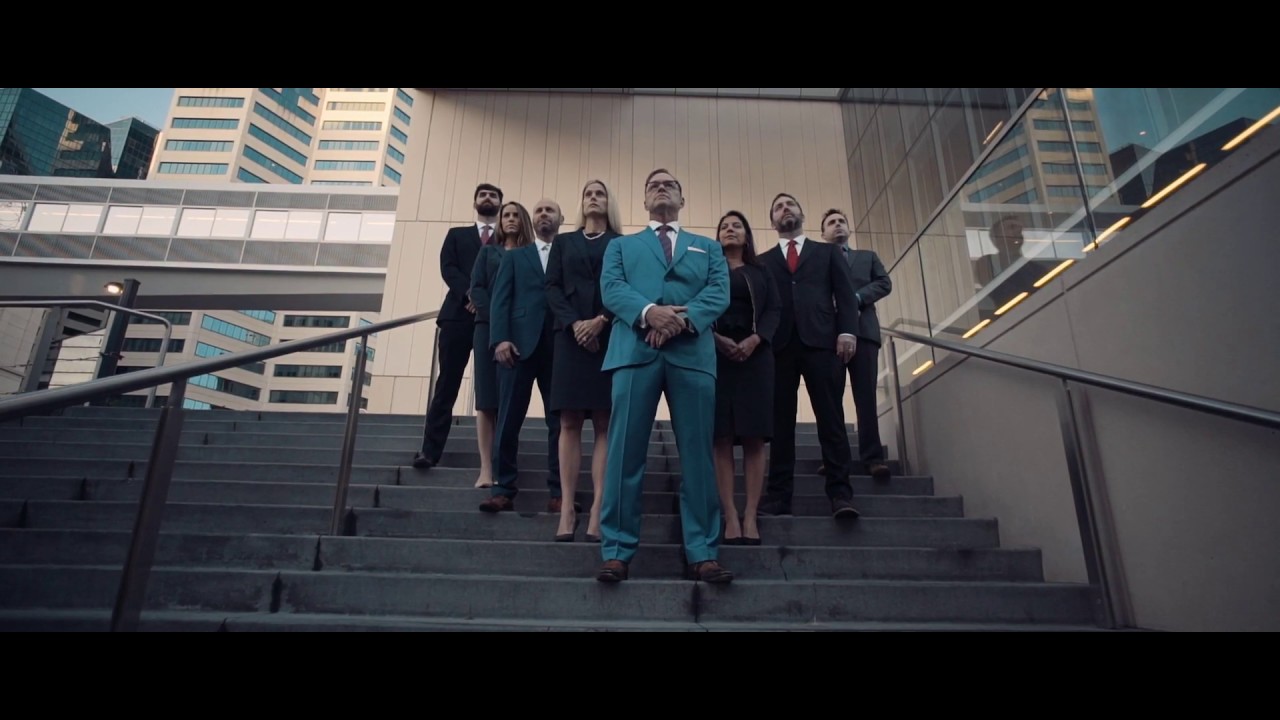 The cost of hiring a lawyer weighs heavily on your mind when you have suffered an unexpected injury in an incident or accident. Suddenly, medical bills start to pile up on the kitchen table. You miss time at work, burning through sick days and paid time off, before going without a paycheck altogether. Meanwhile, life doesn’t stop. You still have rent or mortgage to pay, groceries to buy, and installments on your car. The last thing you can imagine is scraping together enough money to pay for an expensive lawyer.
The cost of hiring a lawyer weighs heavily on your mind when you have suffered an unexpected injury in an incident or accident. Suddenly, medical bills start to pile up on the kitchen table. You miss time at work, burning through sick days and paid time off, before going without a paycheck altogether. Meanwhile, life doesn’t stop. You still have rent or mortgage to pay, groceries to buy, and installments on your car. The last thing you can imagine is scraping together enough money to pay for an expensive lawyer.
Fortunately, you do not need to worry about paying a lawyer to represent you in a personal injury case. Believe it or not, it will not cost you anything to talk to a lawyer who can help you secure compensation for your injuries. Talking to the personal injury lawyer is free of charge, and, if you agree to have the lawyer represent you, your advocate will only get paid if and when you get paid.
In this blog post, we take a deep dive into how lawyers for injured people get paid, why they work without taking money upfront, and what they can do for you if you suffer harm because of someone else’s careless or reckless actions.
To learn more about your legal rights and options after sustaining unexpected injuries in an accident or incident, contact an experienced personal injury lawyer today for a free case consultation.
A Free Initial Consultation, Always
Let’s start at the beginning. You’ve suffered an unexpected personal injury. You think someone else’s careless or reckless actions may have caused it. You understand you probably need a lawyer to help you recover compensation from the party at-fault.
But, you worry: Am I going to have to pay a lawyer just to find out if I have a case?
No, you will not. An initial consultation with an experienced personal injury lawyer should never cost you a cent. If a lawyer tries to charge you for an initial consultation about a personal injury claim, then that is not the lawyer for you. Period.
Experienced, skilled personal injury lawyers offer free initial consultations because they know you face tough financial circumstances right now. They want to make it easy and risk-free for you to sit down with them to discuss whether you have legal rights to compensation for your injuries and losses. Most will meet or speak with you wherever, whenever, and however is most convenient for you, even if that means coming to your home or hospital room, or connecting via Zoom or Skype.
Free initial consultations, in other words, are how personal injury lawyers generate business for their law practice. They do not make money on initial consultations.
Think of a free initial consultation with an experienced personal injury lawyer as a job interview for the lawyer and an education session for you. You get to ask the lawyer questions to help you understand the lawyer’s skill, experience level, personality, and working style. The lawyer gets to ask you questions that help the lawyer to form an initial opinion about whether you have a claim that could result in a financial recovery.
At the end of the initial consultation, the lawyer can give you an initial read on whether you have a case worth pursuing that the lawyer can help with, and if so, you can decide if you want to hire the lawyer to represent you.
Again, this all takes place for free. Never let money worries keep you from having an initial consultation with a lawyer. A skilled, experienced personal injury lawyer will always meet or speak with you, at your convenience, without charging you a dime.
How Lawyers Get Paid: The Three Basic Methods
Lawyers have a reputation for costing lots of money. That reputation comes, in large part, from the way lawyers traditionally charged clients for legal services, and from the failure to appreciate the diversity of types of lawyers that exist. In fact, lawyers practice law in a wide range of specialties, and charge clients in a wide variety of ways.
The Traditional Method: Hourly Billing
The most well-understood method for lawyers to charge their clients consists of billing by the hour. At the outset of an attorney-client relationship, the lawyer and client agree on a per-hour rate for the lawyer’s services. Often, the lawyer will ask the client to pay money, known as a retainer, upfront as an advance payment against those services. The lawyer keeps track of the time spent working on a matter, and sends biweekly or monthly bills to the client describing the work done, the hours spent, and the amount due.
This is a method of billing that works well for lawyers, at least when they have clients who have the ability and willingness to pay bills on time. The per-hour rate for a lawyer can vary widely based on geographic market and the type of work the lawyer does, but those rates commonly exceed $250/hour for experienced lawyers, and in some markets can exceed $1,000/hour!
Hourly billing does not work quite as well for clients, however, because it does not reward lawyers for efficiency. Of course, lawyers have ethical obligations not to spend more time than necessary to accomplish a task, and the vast majority of lawyers follow that rule. However, incentives matter, and under an hourly billing arrangement lawyers get rewarded for billing every minute they spend on a case, and for taking as much time on a matter as their client can afford.
Often, both lawyers and clients find hourly billing gets in the way of a successful, trusting relationship. No matter how ethically lawyer bills, clients do not always agree with the amount of time a lawyer spends on their case when the meter runs at hundreds of dollars an hour. Tensions frequently flare when the client does not see progress in a case to match the time the lawyer has spent and the money clients owe.
But, here’s the good news: lawyers who represent individuals like you who have suffered personal injuries virtually never charge their clients by the hour. If a lawyer offers to represent you by the hour in your personal injury claim, you may take it as a sign that either (a) the lawyer thinks you have a weak or nonexistent case; or (b) the lawyer does not have the skill, experience, or resources necessary to represent you. In either case, that is not the lawyer for you.
The Hybrid Method: Flat-Fee/Task-Based Billing
Billing a fixed amount of money for a defined representation or task constitutes an increasingly popular method of charging clients for legal services. In these arrangements, the lawyer and client agree upfront on the cost of the lawyer’s services, or on a maximum amount a lawyer will charge. The client pays the money upfront or on an agreed schedule based on pre-agreed benchmarks or milestones.
Clients tend to like this method of billing because it allows them to budget for legal costs and solves the potential problem of unlimited legal expenses. The arrangement can also benefit lawyers, in that it prevents tension between them and their clients over mounting legal bills.
However, flat-fee and task-based billing also put lawyers at risk of charging too little for the effort required. In many legal matters, lawyers have difficulty predicting the amount of time they may need to spend to achieve a result or resolution for a client. Billing a fixed amount of money in those matters represents a gamble that could prove costly for a lawyer who ends up having to do far more work than expected.
Lawyers tend only to offer flat-fee and task-based billing in matters where they have a clearly defined task and endpoint for the representation, and in which they can predict with reasonable accuracy the amount of work they will need to do on the client’s behalf. For example, it is common for lawyers to charge a flat-fee to prepare a will, form a corporation, handle a real estate transaction, or represent a client in defending a first-time DUI. Some criminal defense lawyers will also agree to a flat-fee to represent a felony defendant, although that fee can commonly run into the tens, and even hundreds, of thousands of dollars.
Most personal injury lawyers, however, do not offer flat-fee arrangements to clients, for two principal reasons. First, their clients consist of people whose sudden, unexpected injury has put their personal finances under strain, and who often simply cannot afford to pay an upfront fee. Second, unlike a cut and dried criminal case, it can be a challenge for lawyers to predict the amount of work a personal injury case may require, making it too much of an open-ended commitment to risk-taking for a fixed amount of money.
That is not to say flat fees never happen in personal injury cases. Some limited situations may call for them, such as when the route to recovering money for the client appears predictable and straightforward. If you have the means to write a check to a lawyer upfront, then you should feel free to ask a lawyer to consider it as a potential billing arrangement. Personal injury lawyers may also agree to cap the amount of money they receive for their work, which is not exactly a flat fee, but shares similarities with it.
The Personal Injury Method: Working for a Contingent Fee
The vast majority of personal injury lawyers, however, represent their clients on a contingent fee basis (also called working on contingency, or in non-legal settings, working “on spec”). In this arrangement, the lawyer and client agree upfront that the lawyer’s fee will consist of a percentage of the amount of money the lawyer secures on the client’s behalf. The lawyer does not receive payment for legal services upfront or as the case goes along. Instead, the lawyer only gets paid if the lawyer succeeds in getting the client paid. The lawyer gets a cut of the winnings, in other words.
Lawyers and clients agree to the terms of a contingent fee representation at the very beginning of the case by entering into a contingent fee agreement. These days, lawyers and clients commonly agree to sliding-scale percentages based on the amount of money the lawyer may recover, and the amount of time or effort it takes on the part of the lawyer.
Lawyers and clients also agree, from the get-go, on how they will pay the running costs of a case, such as court filing fees, travel, or expert witnesses. Many personal injury lawyers will agree to cover those costs or to split them with clients. Whatever they agree, however, they will put it in writing right up front, in language the client can understand.
Contingent fees work well for lawyers and clients. Clients prefer it because the lawyer goes to work for them without asking for a dime of payment, and the case costs them nothing in attorney fees unless and until the lawyer gets them money. Lawyers prefer it because it gives them and their clients the same goal to shoot for: obtaining the maximum amount of compensation possible, as quickly and efficiently as possible. The more the lawyer secures for the client, and the more efficient the lawyer’s efforts in doing so, the better for both parties. It’s a win-win.
Lawyers and clients also use contingent fees because they make lawyers’ services available to all who need them. Many victims of personal injury find themselves in dire financial straits. They can barely make their rent or mortgage payments, let alone pay a lawyer.
By agreeing to work on contingency, lawyers make it possible for anyone to hire top-notch legal talent to seek the accountability and compensation they deserve. That’s how it should be. Everyone who struggles with the challenges of an unexpected personal injury should have access to justice, not just those fortunate enough to have big bank accounts.
Why Hiring a Personal Injury Lawyer On Contingency is Worth It
Value-minded readers of this blog may raise an eyebrow at the notion of sharing up to a third of their personal injury award or settlement with a lawyer. In a case involving a serious injury with millions in damages, that percentage represents serious money.
Few people object to lawyers getting paid what they’re worth when they do their jobs well. Some personal injury victims may question, however, if lawyers are really worth the percentage they get as a contingent fee. They may even wonder if they would be better off trying to handle a personal injury claim on their own, so that they can keep the money they would otherwise have to share with a lawyer.
We understand the sentiment. And, we acknowledge that personal injury lawyers may earn large fees in high-dollar cases. However, we also strongly believe personal injury lawyers who work on contingency offer excellent value for their clients in every case. Here’s why.
Personal Injury Lawyers Can Do What Their Clients Usually Cannot
To begin, rarely, if ever, can a person who has suffered a personal injury achieve the same result in a claim—or even a result that is half as good—than what a skilled, experienced lawyer can obtain on their behalf. To say this takes anything away from our clients, who are smart, capable, hard-working people.
It simply acknowledges some realities that limit injured peoples’ abilities to advocate successfully for themselves in a personal injury claim, such as:
- Time and bandwidth. Life does not stop for victims of personal injuries. It keeps going, and if anything, gets more chaotic, busy, and stressful. Injuries slow people down, tire them out, and limit their free time. Recovering from a serious injury may as well be a full-time job. They simply do not have the time or energy to commit to investigating, planning, or pursuing a claim for damages. In sharp contrast, that is what personal injury lawyers do. They have the time and bandwidth to handle personal injury cases because that’s their job.
- Knowledge and experience. Victims of personal injuries also rarely have training in or a working knowledge of how personal injury claims work. Unlike experienced personal injury lawyers, they do not spend their days investigating facts about accidents and injuries, researching legal principles, negotiating with insurance companies, planning legal strategies, drafting legal documents, and arguing cases in courts. That’s not to say they couldn’t learn. Some might even have the smarts and intuition to figure out the basics of personal injury law on the fly. For the most part, however, personal injury lawyers simply know much more, and have far more familiarity with the inner workings of the legal system, than their clients. That experience and knowledge translates into value for clients.
- Professional networks. Personal injury lawyers work with a network of experts across a range of fields, and call on those experts when necessary to provide expert opinions and testimony to support their clients’ cases. Expert opinions can provide some of the most compelling and important evidence in a personal injury case. Personal injury victims rarely have access to networks of experts on their own, which would leave them at a potentially significant disadvantage if they tried to “represent themselves” in a personal injury claim.
- Financial resources. As we’ve mentioned, victims of personal injury also frequently face significant financial strain. Building a successful personal injury case can cost money. Experienced personal injury lawyers often agree to put their own substantial financial resources to work on behalf of their clients, by paying for expert witnesses, fact investigation, and other case preparation.
- Projecting seriousness. Finally, personal injury claims get taken seriously when experienced lawyers with strong reputations investigate, prepare, file, and pursue them on behalf of an injured client. Claims just do not get taken as seriously—by defense lawyers, courts, juries, or insurance companies—when a non-lawyer personal injury victim tries to handle a case without legal counsel. That is simply the reality of how the system works.
In short, one significant reason why we believe it is worth it to hire a personal injury lawyer who works on contingency is that a lawyer has the tools, training, and ability to maximize the value of a claim. In our experience, this advantage in experience, know-how, and resources virtually always translates into far better results than a personal injury victim could achieve alone.
Personal Injury Lawyers Cannot Charge “Unconscionable” Fees
Another reason for value-minded personal injury victims to rest easy about the amount of money a lawyer could earn as a fee when working on contingency: laws in almost every state limit lawyers from collecting fees are “unconscionable” or otherwise extremely unreasonable. In some types of cases (such as medical malpractice cases in California), statutes set a maximum contingent fee percentage that personal injury lawyers can charge to clients.
As a practical matter, fees rarely come close to reaching extreme heights. Lawyers, like other business owners, have overhead to pay, including rent, salaries, and administrative expenses. Complex personal injury cases often require a large investment of a law firm’s financial and human resources. Successful law firms can certainly turn a profit when they work hard for their clients, but instances of them collecting fees far exceeding the value they create are few and far between.
So, you can rest easy. Hiring an experienced personal injury lawyer to work for you on contingency does not mean overpaying. Instead, it represents a convenient and essential way for injured people to have access to top-quality legal advice at times in their lives when they can ill afford to add a new expense to their household budget.
Types of Work Personal Injury Lawyers Do Before Ever Receiving a Contingent Fee Payment
So, what exactly do personal injury lawyers do to secure compensation for their clients? It varies widely from case to case, depending on the injuries their clients sustain, the circumstances of those injuries, and the parties who may owe money damages for their clients’ injuries and losses.
As a general matter, however, a personal injury attorney working on contingency will often perform many of the following tasks.
Case Investigation
To build a successful personal injury case for an injured client, a lawyer must first learn what happened and identify who to hold accountable. That almost always requires investigation. Experienced personal injury lawyers know that even cases that seem simple and straightforward on the surface can reveal complexities and important evidence when you start to scratch the surface.
In an investigation, lawyers collect and analyze evidence that can prove the chain of events leading to an accident, the mechanism and nature of a client’s injuries, and the identity of any individual, corporation, organization, or government entity who should pay damages. This process requires interviewing witnesses, reviewing piles of documents, tracking down and evaluating electronic data and images, and preserving physical items—like a wrecked motorcycle or pieces of an appliance that caught on fire—so that a forensic expert can examine them.
Claim Analysis and Planning
Once they have the facts in hand, lawyers for victims of personal injury apply their knowledge and training to figure out the best strategy for securing compensation for their clients.
This strategy can differ from case to case and client to client, depending on a wide range of factors, such as:
- When and where a client suffered an injury or loss;
- The numbers, types, and financial resources of the parties who may owe damages to a client;
- The amount of time that has passed since the accident or incident that caused the injury; and
- The amount of evidence the lawyer obtained through investigation.
Lawyers then explain that strategy and any options or alternatives to their clients. Ultimately, the client always gets to decide whether to move forward with any strategy the lawyer proposes.
Executing the Agreed-Upon Strategy
If a client approves a proposed strategy, then the lawyer prepares and files paperwork necessary for taking legal action. This often involves submitting claim documents to an insurance company or court, and following up with the at-fault parties to seek additional information and evidence on which to build a case. The lawyer also responds to any filings from the at-fault parties, always aiming to protect the injured client’s legal and financial interests.
Negotiating a Settlement, if Possible
Most personal injury cases get resolved through a settlement in which the party with legal liability agrees to pay damages to the injured party, in exchange for the injured party releasing the at-fault party from future liability. Lawyers for the personal injury victim typically negotiate settlements with the at-fault party’s defense lawyer and insurance company. Sometimes, the parties employ a mediator to help them reach an agreement.
The lawyer communicates all settlement offers to the injured client and offers advice about whether to accept or reject them. The injured client always gets the final say on whether to agree to a settlement.
Going to Trial
Most cases settle, but not all of them. When at-fault parties refuse to make a fair and reasonable settlement offer, lawyers for personal injury victims may advise them that the best course of action consists of taking their case to court to present it to a jury in a trial. At a trial, the lawyer for the injured client presents evidence, in the form of physical items, documents, and testimony from lay and expert witnesses, to prove why the at-fault parties should pay damages, and how much money they should pay.
Collecting Damages
Finally, before receiving a dime of compensation themselves, attorneys for personal injury victims who succeed in securing payment for their clients through a settlement or a jury award take the steps necessary to collect the money owed to their clients. In many cases, money gets paid when the parties agree to and sign a settlement agreement. Sometimes, however, the lawyer must take further legal action to collect the debt owed, which may include seizing the at-fault party’s assets or making filings in a bankruptcy case to make sure the at-fault party pays what is owed.
The lawyer for the personal injury victim only collects a fee when the money arrives from the at-fault party and/or that party’s insurance company.
Not Talking to a Lawyer Today Risks Costing You the Most Money
As lawyers with years of experience representing personal injury victims (it’s all we do), we understand the financial strain our clients face every day. The last thing most of them could ever afford would be an expensive lawyer.
That is why personal injury lawyers like us offer free consultations and work on contingency. We truly believe that to ensure justice and fairness for all Americans, everyone should have access to the courts when someone else’s wrongful actions cause them harm. Legal rights should never, ever, depend on how much money you have in your bank account today.

Without exaggeration, the most costly error victims of personal injury can make is not talking to an experienced personal injury lawyer as soon as possible after they get hurt. Personal injury victims (and the families of victims tragically lost in preventable accidents) have valuable legal and financial rights. However, those rights have an expiration date, known as a statute of limitations. You can lose your rights if you wait too long to act on them.
How long is too long? It varies from case to case, but the longer you wait to talk to a lawyer, the greater the danger of important evidence going missing, and of the memories of important witnesses beginning to fade.
Act now to protect your valuable rights to compensation. Do not make the mistake of thinking you cannot afford to talk to a lawyer. You can.
Gomez Trial Attorneys
655 West Broadway, Suite 1700
San Diego, Ca 92101
619-237-3490







